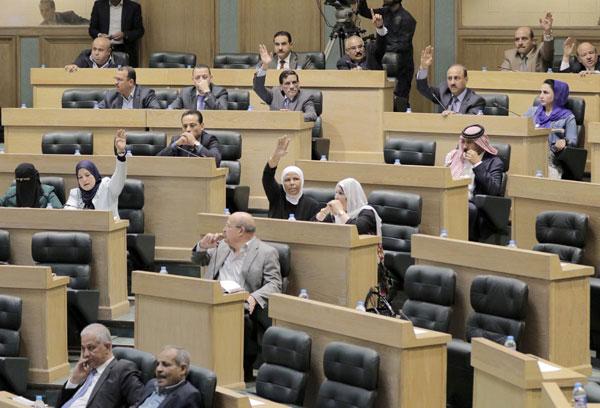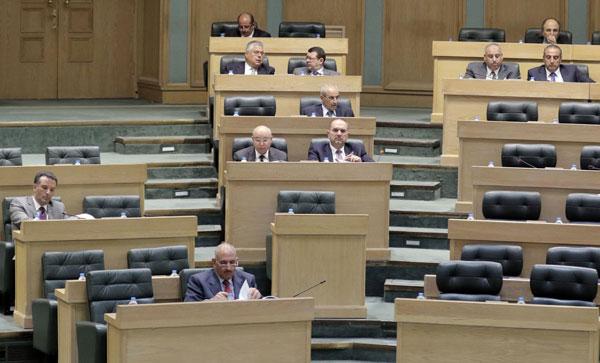You are here
Gov’t introduces ‘non-political’ constitutional changes
By Raed Omari , Petra - Apr 18,2016 - Last updated at Apr 18,2016
AMMAN — The Cabinet on Monday endorsed amendments to five articles of the Constitution, one of which allows dual nationality for occupiers of public posts, the Jordan News Agency, Petra, reported.
The 2016 amendments were referred to the Lower House with an urgency status note.
Lower House First Deputy Speaker Mustafa Amawi told The Jordan Times that the amendments were scheduled on Tuesday's session.
As typical in such cases, he said, the House would refer the proposed amendments to its Legal Committee for review.
As reworded by the Council of Ministers on Monday, a new paragraph was added to Article 40 of the Constitution to read: "Despite what is stated in Paragraph A, the King shall exercise his powers individually and appoint the Crown Prince, the Regent, Senate president and members, and members of the Constitutional Court, president of the Higher Judicial Council, the army’s Joint Chiefs-of-Staff and the General Intelligence Department and Gendarmerie Department directors."
The change concerns the naming of the Regent, which, under the amendment, does not need a recommendation by the Cabinet and the appointment of the Gendarmerie chief. The power to appoint the three top officers, end their services and accept their resignation is exclusively vested in the King, as detailed in Article 127.
Paragraph A of the said article reads: “The King shall exercise the powers vested in him by Royal Decree. Every such Decree shall be countersigned by the prime minister and the minister or ministers concerned. The King expresses his concurrence by placing his signature above the said signatures.”
The Cabinet also reworded Article 50 of the Constitution, removing the death of the prime minister as one of the cases when the government has to immediately resign, Petra said.
The Cabinet added a new paragraph that reads: “In case of death of the prime minister, the government remains in office and will be headed by his deputy or the minister with the oldest term until a new government is formed.”
If passed by Parliament, Article 50 will read: “Upon the resignation of the prime minister, or his dismissal, all ministers shall be considered as having automatically resigned.”
The Cabinet also changed Article 96 of the Constitution, extending the term of the House speaker to two calendar years instead of one.
The said article, if passed by lawmakers, will read: “ The Chamber of Deputies shall elect its speaker at the beginning of each ordinary session for a period of two calendar years, but he may be re-elected.”
The Cabinet also removed Paragraph B from Article 75 of the Constitution, according to Petra. The said paragraph was added in 2011 and under which “no person can become a deputy, senator, minister or a high-ranking official if he/she holds dual nationality”.
Commenting on the 2016 constitutional amendments, Amawi, a constitutional expert, said they have no political implications. The amendments tackled long-held protocols mostly of administrative nature.
“We, MPs, also wanted an extension to the House speaker’s term. One year is never enough for a speaker to implement a vision or bring about a change,” he said.
“And why should a good government resign if the prime minister passes away?” Amawi asked, commending the change the Cabinet made to Article 50.
Related Articles
AMMAN — Prime Minister Abdullah Ensour on Tuesday described the 2016 constitutional amendments as “progressive”, aiming at enhancing the pri
AMMAN — Lower House Speaker Atef Tarawneh said Sunday that the Chamber will discuss the 2016 constitutional amendments in two morning and af
AMMAN — The Senate's legal committee on Thursday endorsed the draft constitutional amendments as sent by the Lower House during a meeting ch


















